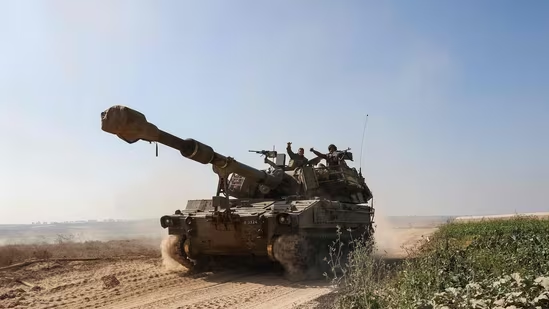Israel-Hamas War: Benjamin Netanyahu Rejects Ceasefire Calls
In the ongoing conflict between Israel and Hamas, Israeli Prime Minister Benjamin Netanyahu has rejected calls for an immediate ceasefire, intensifying an already volatile situation in the region.
The Israel-Hamas conflict has witnessed a sharp escalation in violence in recent days, with both sides exchanging rocket fire and airstrikes. The conflict, rooted in long-standing political and territorial disputes, has claimed lives and caused significant damage in the region. Calls from international leaders and organizations for a ceasefire have grown louder as the crisis unfolds.
Despite mounting international pressure and growing concern for the civilian casualties in Gaza, Prime Minister Benjamin Netanyahu has firmly rejected calls for an immediate ceasefire. He has stated that Israel will continue its military operations until it has achieved its objectives in degrading Hamas' ability to launch rocket attacks and safeguarding the security of Israeli citizens.
Netanyahu's stance reflects the complex dynamics of the Israel-Hamas conflict, where both sides have their own narratives and objectives. The Israeli government asserts its right to self-defense and is determined to eliminate the threat posed by Hamas, which it considers a terrorist organization. On the other hand, Hamas, which governs the Gaza Strip, continues to fire rockets into Israel, contributing to the cycle of violence.
The rejection of ceasefire calls by Prime Minister Netanyahu has raised concerns internationally. Various nations and organizations have urged an immediate cessation of hostilities to prevent further loss of life and damage to infrastructure. Efforts by Egypt, Qatar, and the United Nations to mediate a ceasefire have been ongoing.
The Israel-Hamas conflict underscores the urgency of diplomatic efforts to find a peaceful resolution. The international community is calling for both sides to exercise restraint, protect civilians, and engage in dialogue to de-escalate the situation.
As the situation continues to evolve, the hope remains that a lasting ceasefire and a path towards a peaceful resolution can be achieved in the interest of regional stability and the well-being of all affected populations.

.png)

Comments
Post a Comment